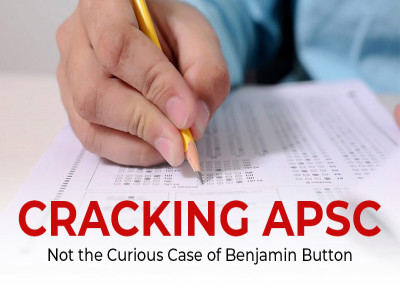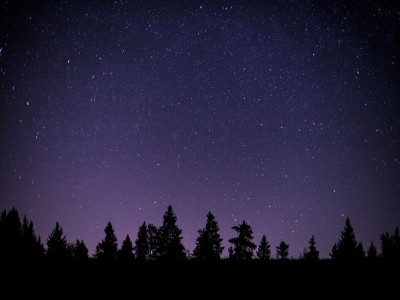
Should Marijuana be legalized in India?
Marijuana, which goes by the scientific name ‘Cannabis’ is perhaps one of those substances that is known to many. In local terms in India, Marijuana is also referred to as Ganja, Weed, Bhang, Maal, etc. The main and active ingredient in the substance is Delta-9-tetrahydrocannabinol (THC) which produces a psychoactive effect. Due to its mind-altering psychoactive effect, Marijuana is recognised as a drug and gets categorised with other hardcore drugs such as Cocaine, Brown Sugar, Meth, Heroin, etc. It is one of the factors why getting high on Marijuana is considered a taboo in our society.
For those unaware, the ‘high’ experienced after consumption of weed is not the same as it is after getting drunk on alcohol. Typically, people who get intoxicated by alcohol tend to display impulsive or outrageous behaviour. On the contrary, people who have experienced weed in their lifetime can tell you that it is rather the opposite of getting drunk. People who are regular consumers of weed (via smoking) tend to be calm and collected; bursts into laughters or drowns in one’s sorrows; and a whole other spectrum of emotions are on display, but the output of emotion is never on the violent side.
Why Marijuana Should Not Be Seen As A Taboo?
Not many know but the Marijuana plant contains more than 100 ingredients that are used for its therapeutic effects and is used medically to treat several diseases. According to Dr. Peter Grinspoon, MD, cannabis specialist at Massachusetts General Hospital; instructor at Harvard Medical School; and a certified health and wellness coach, in his article on Medical Marijuana, asserts that the most common use for medical marijuana is for pain control. Aside from that, marijuana is an excellent muscle relaxer, and is also used to treat nausea, appetite loss, glaucoma, Parkinson's disease fibromyalgia, endometriosis, interstitial cystitis, HIV, irritable bowel syndrome, Crohn’s disease, multiple sclerosis, and many many more ailments.
It is evident that every medicine, when overused and overdone, becomes a drug (a lethal drug); hence, the synonymity between medicine and drug. But unlike alcohol poisoning, drunk accidents, overdosing on hardcore substances etc, Dr. Peter Grinspoon, MD in his Medical Marijuana article claims that "part of its allure is that it is clearly safer than opiates (it is impossible to overdose on and far less addictive) and it can take the place of NSAIDs such as Advil or Aleve, if people can’t take them due to problems with their kidneys or ulcers or GERD." One article by the National Center for Biotechnology reads an "analysis of the National Poison Data Systems database involving more than 2 million human exposure cases in 2012 did not list cannabis among the top causes of death related to pharmaceutical products." It is for these reasons, marijuana is legalised in many countries. But why is there a ban imposed in India?
Can India benefit from legalizing Marijuana, again?
It may come as a surprise to many, but cannabis was legal in India at one point of time, and was legally sold in several states . But the Rajiv Gandhi Govt banned its consumption in the year 1985.
In another instance, the use of Bhang in Indian (Hindu) culture has been traced back to time immemorial and several Indian works of literature from earlier than 1000 CE make reference to Bhanga. An intoxicating ritual drink known as Soma is highly regarded in the Rigveda (c. 1700–1100 BCE) and one of the alternatives for the plant that was utilised to make soma during the Vedic era was Cannabis sativa. Bhanga is also listed as one of the five sacred plants in the Atharvaveda (c. 1500–1000 BCE) that reduce anxiety. However, Sanskrit intellectuals argue on the philological merits of equating this bhanga with either marijuana or modern bhang, though.
In contemporary India, you can see people openly consuming the intoxicating drink 'bhang' in Hindu festivals such as Holi and Mahashivratri. The holy wandering Sadhus and saints openly smoke ganja in public on and off holy festivals. These are done in honour of Lord Shiva, to concentrate better on meditation, to feel closer to God, and to remove their sins. It is said that when the toxin known as halahala poisoned the Lord Shiv the destroyer, he travelled to one of the mountainous wonderlands where he discovered some marijuana plant; he consumed it and recovered from the poison. From that point forward, ganja became his favourite plant, and he spent his days in a state of intense meditation while stoned.
To conclude, the government's prohibition of marijuana seems hypocritical. While it is illegal, the law won't arrest holy Saints who smoke ganja in public. Why? Because they fear the repercussions of messing with messengers of God. There is definitely some laws and relaxation on its use for religious purpose but somewhere law is compromised when it comes to the matter of faith.
Yes! Everything overdone becomes a drug but Marijuana kills less than a drunk driver, alcohol poisoning, aggressive fight, impulsive behaviour, etc. The government of India needs to ban the manufacturers of Alcohol and Tobacco (cigarettes mostly) entirely from the root level. The industry should be completely sealed and churned out of the country because drunk driving, mouth cancer, and lung cancer from tobacco use are one of the leading causes of death. And replace it with Ganja, which can be consumed in the form of drinks and eatables rather than smoking.
But, a large part of the Indian economy is propelled by the alcohol and tobacco industries, and if marijuana is legalised, people will just grow it themselves, hence, it is less likely that marijuana will be legalised anytime soon or ever. Yet, if cannabis were to be legalised, several deaths and crimes such as drug trafficking and drunk violence amongst others may drastically decrease.
There is no promotion or support for substance use in any form.
Disclaimer: The opinions expressed in this article are those of the author's. They do not purport to reflect the opinions or views of The Critical Script or its editor.

Newsletter!!!
Subscribe to our weekly Newsletter and stay tuned.

















Related Comments